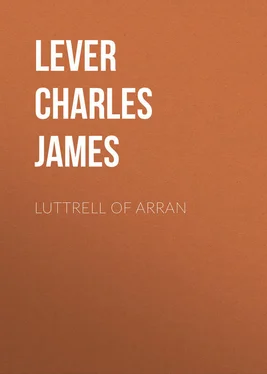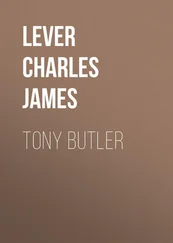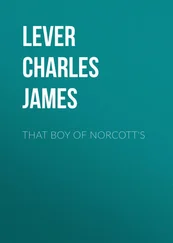Charles Lever - Luttrell Of Arran
Здесь есть возможность читать онлайн «Charles Lever - Luttrell Of Arran» — ознакомительный отрывок электронной книги совершенно бесплатно, а после прочтения отрывка купить полную версию. В некоторых случаях можно слушать аудио, скачать через торрент в формате fb2 и присутствует краткое содержание. Жанр: foreign_antique, foreign_prose, на английском языке. Описание произведения, (предисловие) а так же отзывы посетителей доступны на портале библиотеки ЛибКат.
- Название:Luttrell Of Arran
- Автор:
- Жанр:
- Год:неизвестен
- ISBN:нет данных
- Рейтинг книги:4 / 5. Голосов: 1
-
Избранное:Добавить в избранное
- Отзывы:
-
Ваша оценка:
- 80
- 1
- 2
- 3
- 4
- 5
Luttrell Of Arran: краткое содержание, описание и аннотация
Предлагаем к чтению аннотацию, описание, краткое содержание или предисловие (зависит от того, что написал сам автор книги «Luttrell Of Arran»). Если вы не нашли необходимую информацию о книге — напишите в комментариях, мы постараемся отыскать её.
Luttrell Of Arran — читать онлайн ознакомительный отрывок
Ниже представлен текст книги, разбитый по страницам. Система сохранения места последней прочитанной страницы, позволяет с удобством читать онлайн бесплатно книгу «Luttrell Of Arran», без необходимости каждый раз заново искать на чём Вы остановились. Поставьте закладку, и сможете в любой момент перейти на страницу, на которой закончили чтение.
Интервал:
Закладка:
As if the strain on his memory to recal the precise words employed, and to bring back the whole scene, had been too much for him, or as though the emotions of the past had surged back to overwhelm him, the old peasant held his hand over his eyes, and sat several minutes without speaking.
“Did Luttrell come on the table, then?” asked Vyner.
“No, Sir; he was seen in court a short time before, but when he was called he couldn’t be found; nor from that day out was he ever seen in the streets of Castlebar. It was that sent him away to the island. His pride and his shame together.”
“You are less than just to my old friend,” said Vyner, warmly. “To know what he felt, to understand all the difficulties that he saw before him. you should be in his place as he was.”
“That’s as much as to say that I ought to be a gentleman before I condemned him,” said the old fellow, with a look of intense craftiness. “But the lawyer that defended me didn’t want to be a labourin’ man to explain what I felt, or what was passin’ in my heart. No, Sir, there’s things in the world that are just the same to the rich man as to the poor one, just as sickness and sorrow is. Get up, Kitty, we’re stayin’ too long here; it will be black night before we get home.”
“How many miles do you count it?”
“Twenty-one – long miles, too – the last four of them over shingle, and steep besides.”
“Shall I find an inn – well, shall I find shelter for the night?” said he, correcting himself.
“Shelter I could give you myself, but I’d rather you’d look for it anywhere else. I told you already why.”
“Well, I’m not afraid of your company, and, if you don’t dislike mine, we’ll travel together.”
The little girl said something with eagerness in Irish, and then turning to Vyner she took his hand, and said, “Yes, come with us.” And they set out.
CHAPTER XIII. THE PROJECT
It was on the evening of the second day after Vyner’s departure that Grenfell, never much given to anxieties about others, felt a certain uneasiness, and sauntered down the glen, wondering what might have detained him. He had not gone fully a mile, when he saw in the grey twilight a man approaching; he hailed, and was answered in his friend’s voice, “All right; it is I.”
“I was going to start the hue and cry, or whatever may represent that institution here, after you, Vyner. Where have you been all this time?”
“As to the where, my friend, it would require a very different tongue from yours and mine to say; Russian and Polish names are nothing in comparison. As to the how I have been, is easier to answer – never better; though with all due gratitude be it said, I have passed my time in rather questionable company.”
“At least they recognised the rights of hospitality?”
“Arabs themselves were never more punctilious. My host was the grandfather of our little friend the fairy queen, a man of nigh eighty, who had been tried on two capital charges, and ought, I suspect, to have been convicted on both. His friends, to the number of twenty odd, were all Whiteboys, Ribbonmen, or whatever other name includes lawbreakers of the first magnitude; and one, as handsome and frank-featured a young fellow as ever you saw, who accompanied me to the lake side this evening, had made his escape from Castlebar gaol when under sentence of death, and actually went back to the town to witness the execution of his cousins on the following Saturday, it being, as he said, the only mark of affection he was able to show them.”
“I make you my compliment, as the French say, on your company. And the women, what were they like?”
“I saw but two: an old hag that was brought down special to give an opinion upon me from external traits, and pronounce whether I had the colour of hair or eyes that indicated a tendency to bear witness against my neighbour; the other was a sickly creature, bedridden though in the prime of life, mother of little Katherine.”
“But explain how you could have prolonged your stay amongst such people. What were you doing? what were you saying?”
“Doing? The whole day we walked the mountains. They led me by paths known only to themselves over an immense mountain district, showing me all that was noteworthy, and pointing out effects of scenery and picturesque spots with a feeling and taste that amazed me. They used no cant of art, none of that tricky phraseology, it is true, which we accept as the vernacular of all landscape description; but in their wild imagery and reckless imagination they gave names to the places which showed how deeply objects of terror or beauty had appealed to them. Then at nightfall we gathered close to the turf fire and the potato ‘kish,’ a wide, open basket, which served as strainer and dish together. There we supped, talked politics, religion, law, and a little literature – at least so far as the Life of Freeny and the story of Moll Flanders enter into biographical letters.”
“How I should like to have drawn a cordon of policemen round the party and netted the whole.”
“You might like to have planned the campaign, but I’ll be sworn if you had been favoured with a look at the company you’d never have led the expedition.”
“What a traveller’s knack it is to exaggerate the war-paint of one’s Indian friends,” said Grenfell, superciliously. “But here we are with our supper waiting for us, and even Mr. ‘O’Rorke’s noble feast’ will contrast favourably with your host’s.”
The meal ended, they seated themselves on the door-sill, looking out into the still and starry night, and resumed the theme they were discussing.
“I take it that you said you were a mere tourist rambling for pleasure?” asked Grenfell.
“No, I told them I had come down to see the country, with some intentions to make a purchase. It was not so easy to explain that I was more eager to acquire a very beautiful and picturesque tract than a very remunerative one, but they believed me at last – that is, they gave credit to my sincerity at the cost of my shrewdness.” Grenfell nodded, as though he agreed with them, and Vyner went on: “We were a full house when I made my declaration – there were, I should say, six or seven-and-twenty present – and they concurred in applauding the frankness with which I spoke to them. A very old man, a venerable figure, whose high forehead and white beard would have impressed me, perhaps, more reverentially if I had not been told that he had been flogged by John Beresford, in the year ‘98, for some cruel outrage he had committed – this apart – he, however, complimented me highly on my straightforwardness, and said that if others would do like me there would be fewer disturbances about land; and the illustration he used was this: ‘If you go into a fair to buy a horse, and you see a splendid animal, strong-boned, well-ribbed, and powerful, with every promise of speed and strength; – you are as well satisfied with his price as with his perfections, but do your inquiries stop there? – not a bit of it. You know well that he may be a capital hunter and a noble roadster, but you want to learn what his temper is. All his fine qualities depend upon this, for if he be unruly and unmanageable, to what purpose is his power or his activity? It is precisely the same with a property: you may have wood and water, arable land and lay, mines and meadows, and, with all these, there may be a “temper” that renders them worthless. Landlords won’t believe this; buyers won’t listen to it. They say, “Make out my title clear and clean, and leave me to deal with it.” Men with money in the bank, and who, because they can live anywhere, are chained to nowhere, cannot understand the love of a poor labouring man to some mud-hovel or some shealing, to a brook where he has paddled in boyhood, to the mountain that he has seen from his earliest infancy. They do not, cannot, conceive why poverty should sharpen any susceptibilities – poverty, that can blunt so many – and they say, “Turn him out. I’ll find a place for him elsewhere.” But that’s a mistake; you might as well say you’d replace the child he has followed to the churchyard. The man, in the very proportion of his destitution, has bound up his heart with some half-dozen little objects that have, from time and long usage, grown to be part of him. The monotony that wearies the rich man is the luxury of the poor. To live where their fathers lived, to see an unchanged world around them, to have few contrasts of the present with the past, is their paradise – ‘”
Читать дальшеИнтервал:
Закладка:
Похожие книги на «Luttrell Of Arran»
Представляем Вашему вниманию похожие книги на «Luttrell Of Arran» списком для выбора. Мы отобрали схожую по названию и смыслу литературу в надежде предоставить читателям больше вариантов отыскать новые, интересные, ещё непрочитанные произведения.
Обсуждение, отзывы о книге «Luttrell Of Arran» и просто собственные мнения читателей. Оставьте ваши комментарии, напишите, что Вы думаете о произведении, его смысле или главных героях. Укажите что конкретно понравилось, а что нет, и почему Вы так считаете.












